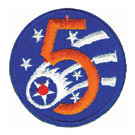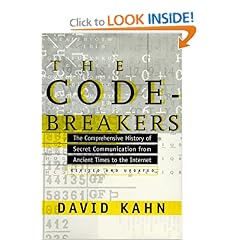Japan
Posts: 754
Joined: 10/26/2007
From: Heaven on Earth (Scandinavia of course)
Status: offline

|
quote:
ORIGINAL: Erik Rutins
The real question was what could they have done with a one hour alert?
I don't think anyone disputes that there were a few clues here and there that, in hindsight, seem like plenty of warning. But hindsight is very different from foresight. In my opinion, the difference between saying that they should have connected the dots from the clues they had (but didn't) and saying that they did, but chose to let the Japanese attack them, is where it crosses over into conspiracy theory-land.
It's extremely easy, I think, to imagine these kinds of things after the fact and even to find them believable, if you look at things from a modern perspective and with a limited set of data. It's much harder to see things as the people at that time actually saw them and to really get in the mindset they had, that to me is the challenge of really studying history.
Just to add to this, I am no historian, at best an amateur in that trade but I've seen some recent books that tend to get into revisionism of a sort regarding some events of WWII. It seems like these books get a larger audience the further away we get from the actual events, which tells me that we're collectively losing our bearings on what the folks back then actually knew and how they thought.
Regards,
- Erik
I fully do agree with you.
I however also think we should add one statement to yours, and that is that "new information" who is becoming available as time goes deserve to be studied equally objectively.
The Documentary I referred to above is made by a serious producer (made by the BBC), and it has some interesting perspectives on things. What makes it interesting is that it is based on witness rapport and on newly declassified archives, the data it present was simply impossible to present in 1950 as it was not available to the public.
I prefer this kind of programs, because with actual documentation it some times shows "what was history yesterday"
is no longer history today, simply because "the actual" documents now is available for the public.
And this kind of objective study I think is more reliable, then what was "common knowledge" back in 1946+
A real world example that i personally can remember very well, is Swedish Iron Ore Trade values in 1940 to Germany,
In my history book from 1981 it shows some numbers, and this was what was presented on School to students, and also to University students, it was the knowledge of the day, several sources "verified" the numbers.
Today (January 2007) Riksarkivet (national archive) relished the "actual" contracts, and the "new" but actual history shows that more then 14 times the figures was actually delivered from Sweden to Germany.
So Swedish (and most countries) History Class book's now released in 2008 shows 1400% higher values then the books they used in 1981. The only thing that has changed, is that "more" documents has been released since back in the 1980's.
This kind of information I think we need to study equally objectively as any "former" history that have been known to us.
For this reason, I don't "decline" new information the same way I used to do before,
I instead try to study it objectively and I try to find the "actual" sources for the information. I frequently try to obtain copy of the actual source mentioned, and often try to make my own impression of the reliability in the information presented.
This have been sort of a hobby of mine the last 7-8 years.
I frequently find that many people are "stuck" in old history, and in many cases don't keep them self updated, this leads to a gap between "history" and "history". My personal experience shows that to know the details of a situation, one has to keep studying it for a while, and one need several sources, it is a complicated and time consuming task.
Generally IMHO sources that the BBC are using for its Documenterys I find to usually be very reliable, so I personally find my self less critical to established channels like that.
Anyway, I Agree with you, but we always need to be critical and we should always stay open minded about the "facts" in any situation. I think happenings in modern History is jet another proof of that.
Anyway Eric, nice talking with you, now i must go and sleep so good night to you sir.
< Message edited by Japan -- 5/2/2009 10:22:47 PM >
_____________________________
|
 Printable Version
Printable Version



















 New Messages
New Messages No New Messages
No New Messages Hot Topic w/ New Messages
Hot Topic w/ New Messages Hot Topic w/o New Messages
Hot Topic w/o New Messages Locked w/ New Messages
Locked w/ New Messages Locked w/o New Messages
Locked w/o New Messages Post New Thread
Post New Thread